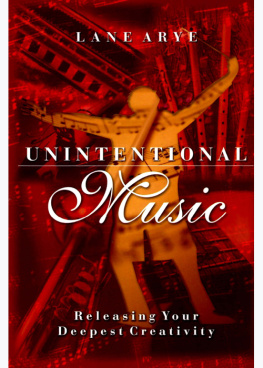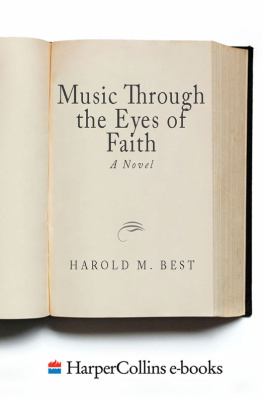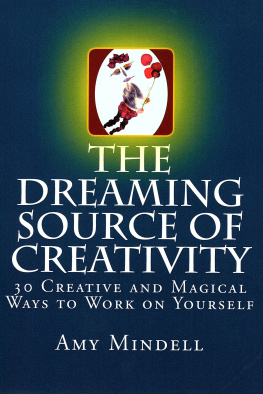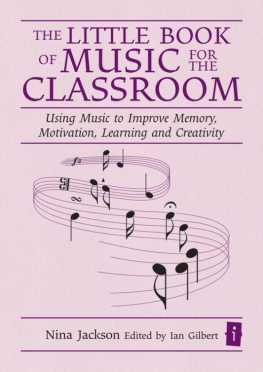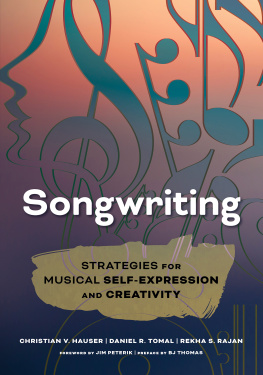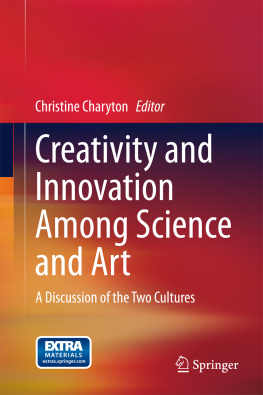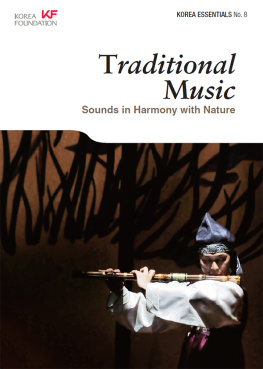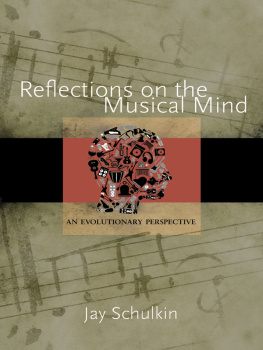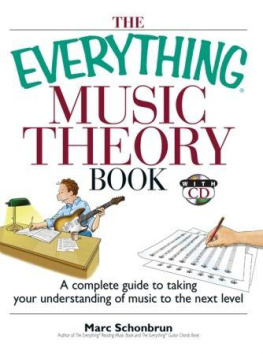
Copyright 2001
by Lane Arye
All rights reserved, including the right to reproduce this work in any form whatsoever, without permission in writing from the publisher, except for brief passages in connection with a review.
Cover design by Marjoram Productions
Trumpet images Nick Rowe/PhotoDisc
Miscellaneous cover images Steve Cole/PhotoDisc
John Cage excerpt from page 8 from Silence
1973 by John Cage, Wesleyan University Press,
by permission of University Press of New England
Haiku from page 17 of On Love and Barley: Haiku of Basho, translated
by Lucien Stryk (Penguin Classics, 1985). copyright Lucien Stryk, 1985.
Reproduced by permission of Penguin Books, Ltd.
Submitted excerpts from Tao Te Ching by Lao Tzu.
a New English Version, with foreword and notes by Stephen Mitchell.
Translation copyright 1988 by Stephen Mitchell.
Reprinted by permission of HarperCollins Publishers, Inc.
Hampton Roads Publishing Company, Inc.
1125 Stoney Ridge Road
Charlottesville, VA 22902
434-296-2772
fax: 434-296-5096
e-mail:
www.hrpub.com
If you are unable to order this book from your local bookseller, you may order directly from the publisher.
Call 1-800-766-8009, toll-free.
Library of Congress Catalog Card Number: 2001094080
ISBN 978-1-57174-260-5
10 9 8 7 6 5 4 3 2 1
Printed on acid-free paper in the United States
www.redwheelweiser.com
www.redwheelweiser.com/newsletter
For Markus Marty
One need not fear about the future of music. But this fearlessness only follows if, at the parting of the ways, where it is realized that sounds occur whether intended or not, one turns in the direction of those he does not intend. This turning is psychological and seems at first to be a giving up of everything that belongs to humanityfor a musician, the giving up of music. This psychological turning leads to the world of nature, where, gradually or suddenly, one sees that humanity and nature, not separate, are in this world together; that nothing was lost when everything was given away. In fact, everything is gained.
John Cage, Silence, 1961
Table Of Contents
Acknowledgments
Deepest thanks to Arny Mindell who developed process work and changed my life. This book is an extension of his ground-breaking work. It was he who suggested that I explore the unintentional aspects of music, and he who encouraged me to write this book. He is a constant source of inspiration and love.
Special thanks to Christoph Heer, a true friend and co-researcher. His willingness to experiment and his motivation to learn and grow gave me a unique opportunity to cook my ideas and methods in a friendly pot.
Loving thanks to my mother, Leonora Arye, for teaching me about the unintentional at an early age, for infusing me with creative spirit, for encouraging me to tell her awesome story, and for her friendship; and to my father, Leonard Arye, for his unending support and love in spite of all my youthful mishugas; and to my brothers, Lowell Arye and Larry Arye, for being behind me every step of the way.
Many thanks to Dawn Menken for introducing me to process work and suggesting that I move to Zurich to study it; to Joe Goodbread, who encouraged me to hold onto my passion for music while studying psychology, and who helped me immeasurably with the subchannel concept; to Renata Ackermann, who was helpful, supportive, insightful and amazingly generous with her time during the first version of this work; to Markus Marty for his keen eye, hard work, warm heart, and spirit; to Richard Leviton and Frank DeMarco at Hampton Roads for believing in this project and making wonderful suggestions which improved the book; to Michael Peus for experimenting with me at the beginning of my quest to combine music and process work; to Marvin Surkin for his support during the first version; to Wendy Davis for sharing her research on creativity; to Clare Hill for many fascinating discussions about speech, sound, and precise description; to Jan Anderson for introducing me to a community of inspiring people who stammer; to Julie Diamond, Alison Lee, and Greg Rodehau for help with intention; to Cynthia Mitchell for supporting the artist in me and allowing me to reproduce portions of her play here; to Tomasz Schwed for his authenticity; to Margie Simpson for her generosity; to Sharon AvRutick for her friendship and her amazing editorial talents; to Arny Mindell, Arlene Audergon, Rhea, Sara Halprin, Selina Gan, Jane Kepner, Justyna Kaczmarek, Judith Jones, Diane Butler, Matt Guynn, Andrea Battermann, Helmut Eisel, Nisha Zenoff, Magdalena Schatzmann, Flo Mizelle, John Booth Mizelle, Ursula Hohler, Franz Hohler, and Karen Elias for helpful feedback; to Margaret Ryan for her heartfelt and masterful editing; to Lecia King for her excitement and her fresh perspective; to Veronica Vass for support and insight at a crucial moment of writers block; to Judith DivaBear Jones for turning me on to Somebody's Knocking and supporting this white boy's love of gospel music; to Bobby McFerrin for teaching me that freedom includes discipline and learning; to Aretha Franklin for singing from the depths of her soul; to my friends in the process work community who live double lives as musicians, artists, poets, and dancers; and especially to all the musicians, writers, artists, students, and clients who opened themselves, showed themselves, transformed themselves, played great music, and taught me to sing again.
Preface
I always loved singing more than anything else. I loved the release, the joy, and the passion of self-expression. Even in the midst of the worst despair, singing would save me. I sang everywherein stores, on the street, in buses and trains. People often smiled and commented on my good mood. That surprised me, since I was not always in a good mood. I was just singing. They did not differentiate the excitement from the pain, the loneliness from the love. No matter what I was expressing, they heard happiness. And, in a way, they were right. Because those holy sounds transformed everything inside of me into ecstasy. I loved nothing more than this, and wanted to devote my life to it. I studied voice, guitar, music theory, jazz theory, and improvisation. I sang in bands, and played in clubs and festivals.
But something horrible happened. The more I learned to sing correctly, the less contact I had with why I was singing in the first place. It felt like there was nothing inside me to express anymore, or I didn't know how to get in touch with it. Instead of paying attention to the music we were making together, I wondered if the other musicians liked my singing. On stage, I heard myself through the audience's ears instead of my own. Thinking it was all due to my lack of talent and experience, I practiced harder. It only got worse. I knew all the grammar but could not form a sentence. I had nothing to say. I felt empty. Then I met Arny Mindell. the man who developed process work.
Arny reintroduced me to myself. His way of looking at the world and at people opened my eyes and my heart. His special quality of love, his openness to the irrational, his unending spirit of discovery and delight, changed my life. Process work is a tool for awareness and personal development. More importantly it is a trust that even the most disturbing experiences can, if followed, lead us in the direction of change, growth, connection, and wholeness. I think of it as riding the hidden wind. Process work helped me to get in touch with something essential, authentic, and meaningful. I moved to Zurich, Switzerland, to study it full time. Eventually, I became a process worker and started to help other people find the magic in their lives.
Next page
